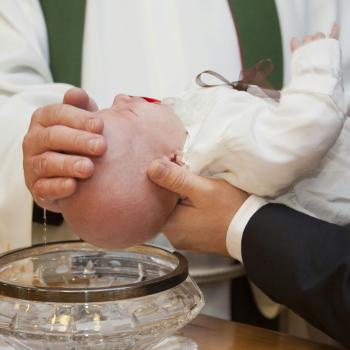Is the crack in the Washington Monument a sign from God, or a mere cosmic coincidence? Pat Robertson's comment this week referencing the earthquake-produced breach got the attention of the news media and garnered criticisms from the usual suspects. On his daily program, The 700 Club, Robertson said, "I don't want to get weird on this, so please take it for what it's worth, but it seems to me the Washington Monument is a symbol of America's power. It has been the symbol of our great nation. We look at that monument and we say this is one nation under God. Now there's a crack in it."
Over the years, the founder of The Family Channel (before it was acquired by ABC-TV) has offered commentary through the lens of his faith and worldview that have frequently drawn criticism. Among his so-called "weirdisms": the belief that prayer can deflect hurricanes, his call for the assassination of Hugo Chavez, his assessments of the causes of 9/11, and much more. But, regardless of Robertson's postulations, it seems that the question at hand is one worth considering: Could the crack in the Washington Monument be a sign, or a message, to us from God? Could it be a wake-up call?
Skeptics would say that any subjective faith significance added to the evaluation of an objective event, whether climatic, financial or political, is preposterous, even fanatical. If God exists, who can know his mind? Who would presume to speak on his behalf? And would God actually use the elements of the physical world to convey spiritual messages or (to use a less popular term) judgments on a nation?
An orthodox Christian worldview affirms that God has frequently used physical events in history to make spiritual assessments and judgments of leaders, nations and people. The parting of the Red Sea led Israel to its Promised Land; the Great Flood brought destruction to a world in full rebellion, and the rainbow of the promise was intended to remind the faithful of God's grace. In the New Testament, as Christ was crucified, darkness fell at the middle of the day and the curtain leading to the holiest part of the Temple was ripped in two. This event signified the access to God's presence provided to mankind as a result of Christ's atonement. Judeo-Christian history is, in fact, full of physical events that point to spiritual pronouncements.
Some will find it difficult to entertain the notion that God might convey a message through a crack in the Washington Monument because they do not believe in God in the first place, or they do not believe that God takes action in the physical realm. Or perhaps, understandably, they scorn smug and self-righteous spiritual 'leaders.'
Yet there's a more important point to be made. In a fully Biblical worldview, judgments from God do not begin among unbelievers or the unchurched; rather, the New Testament (1 Peter 4:17, NIV) teaches that "it is time for judgment to begin with God's household." If the crack in the monument is a sign of a broken nation, then the message may be meant for the church first and foremost. Perhaps God is calling the Church, every professing believer and Christian leader, to repent of underestimating the needs, the hurts and the present desperations of this country. Perhaps the monument's brokenness is a call for the Church to repent and to care for our neighbors with renewed diligence and self-sacrifice.
If God is truly the Creator of the universe (and I am convinced he is), then doesn't he have both his Word (i.e., the Bible) and his World (the Cosmos) at his disposal? At the one extreme, we could view every little storm that waters the earth as a divine message of some sort. At another extreme, we assume from the beginning that even historic catastrophes cannot bring prophetic messages from God. Should people of faith not even consider whether God may be delivering a wake-up call to a broken nation—and first of all to believers?
Matthew's Gospel (16:1-3) tells of a time when "the Pharisees and Sadducees came to Jesus and tested him by asking him to show them a sign from heaven. He replied, 'When evening comes, you say, 'It will be fair weather, for the sky is red,' and in the morning, 'Today it will be stormy, for the sky is red and overcast.' You know how to interpret the appearance of the sky, but you cannot interpret the signs of the times." Might he say the same thing to those today that so quickly dismiss the signs of our times?





